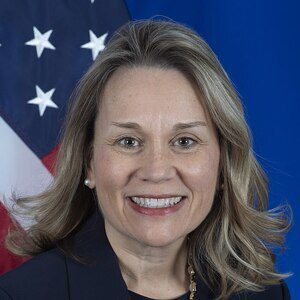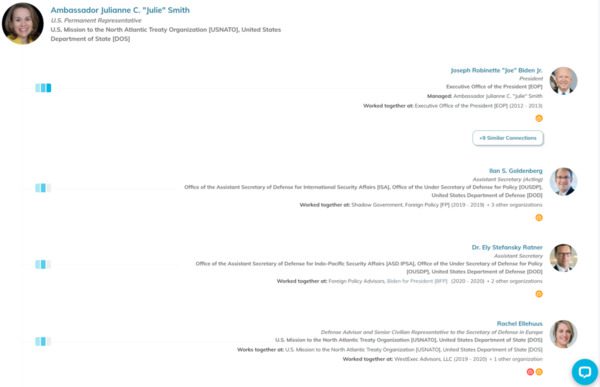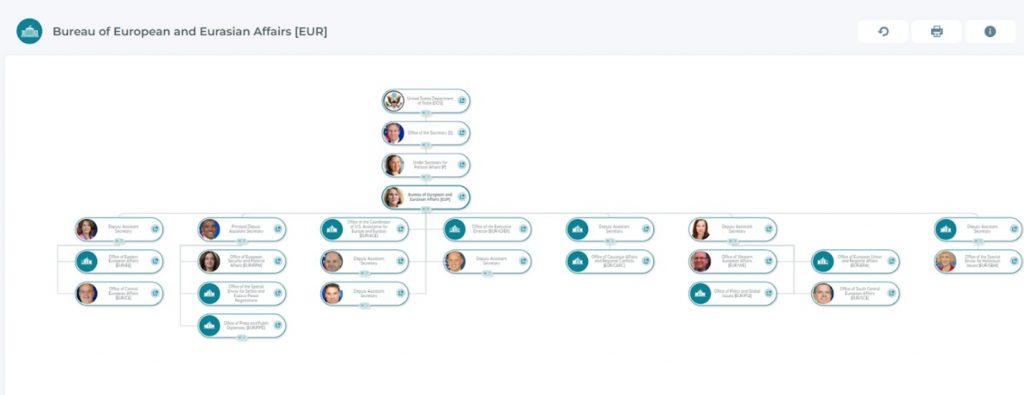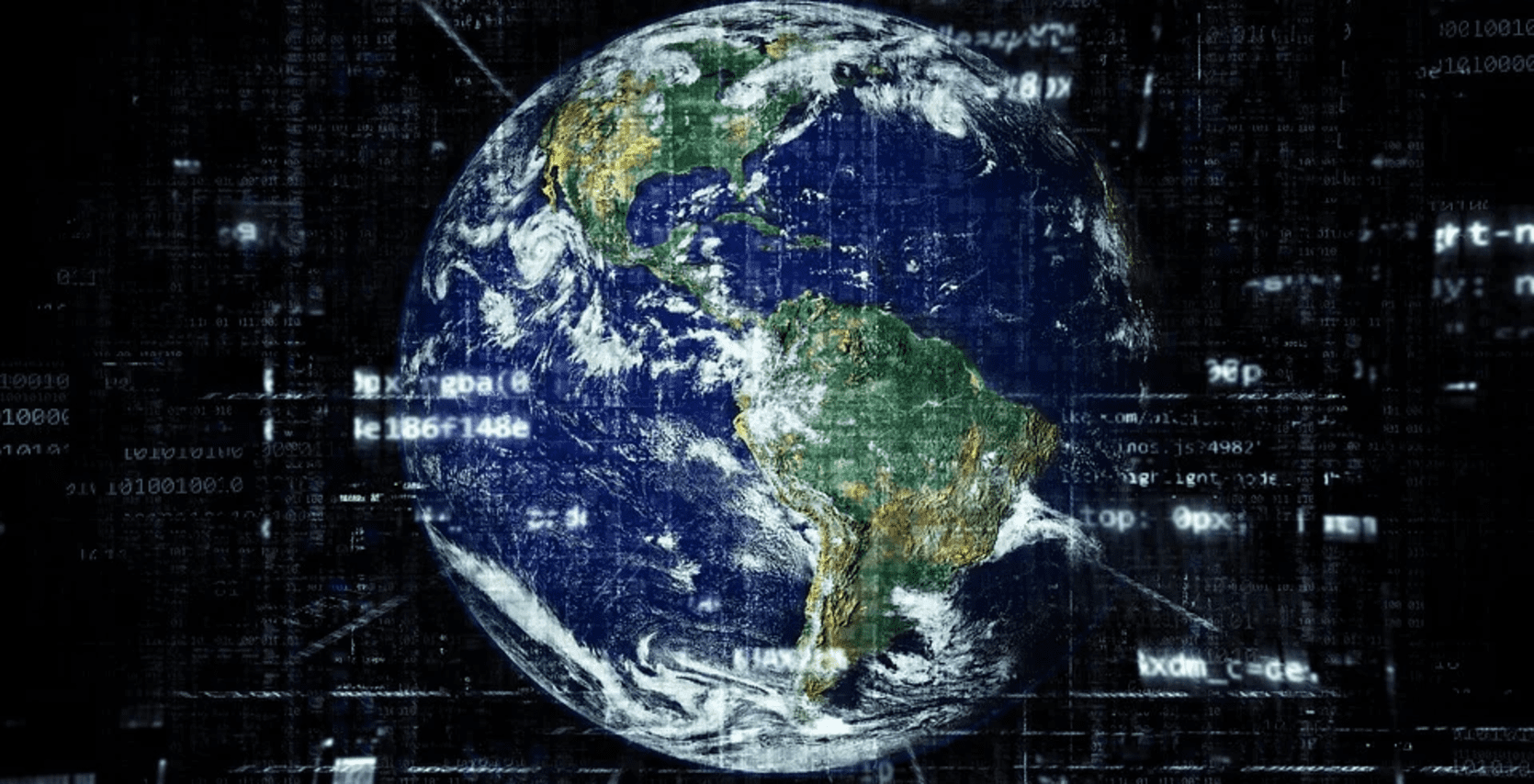
Ambassador Julianne Smith
Russia’s invasion of Ukraine has claimed lives and has displaced over 2 million Ukrainian people since Feb. 24. As Ukrainians fight to defend themselves and their nation against increasingly aggressive tactics, European allies and the U.S. have sought to demonstrate unified support of Ukraine, which is not a member of NATO. Along with economic sanctions on Russian banks and officials, Biden announced a ban on Russian aircraft in U.S. airspace, a measure previously taken by all 27 member countries of the European Union. Most recently, Biden banned import of all Russian oil and gas to the U.S.
In the spotlight of this war are Ukrainian leaders and civilians seeking safety and fighting a battle for which they never bargained.
Here is a list of Ukraine-focused charities if you are looking to donate.
To develop a comprehensive understanding of the international security picture, it is essential to know which U.S. officials are influencing and implementing international policy. Especially now, with multiple converging issues — cybersecurity, European diplomacy, international aid, etc. — it can be difficult to follow who is involved.
Leadership Connect is providing a guide to which U.S. organizations and officials are navigating the crisis overseas. Beyond Secretary of State Anthony Blinken, Secretary of Defense Lloyd Austin, and National Security Advisor Jake Sullivan, we highlight leaders at: U.S. Mission to NATO; Bureau for Europe and Eurasia; U.S. Mission to the United Nations; USAID; and the National Security Council. We include background on their career histories and networks to show how these officials have come to be influential at this historic time.
I. U.S. Mission to the North Atlantic Treaty Organization [NATO]
II. Bureau of European and Eurasian Affairs, State Department [EUR]
III. U.S. Mission to the United Nations [USUN]
IV. United States Agency for International Development [USAID]
V. White House: National Security Council [NSC]
VI. European Command [EUCOM], Department of Defense
I. U.S. Mission to the North Atlantic Treaty Organization [NATO]
U.S. representation at NATO is working with allied members to coordinate a unified response to Russia’s invasion.
Permanent Representative to NATO: Ambassador Julianne Smith
Role:
Smith serves as the U.S. Chair of the National Atlantic Council, the primary political decision-making body of the alliance. In this capacity, she has been responsible for coordinating a unified response against Russia with other NATO leaders.
Background:
Smith holds decades of European security experience. Prior roles include Director, Europe Program at the Center for Strategic and International Studies, and Principal Director for Europe and NATO at the Department of Defense in the Obama administration.
Smith has amassed significant connections in DoD and DOS circles, according to her Leadership Connect network. She worked at Center for New American Security (CNAS) during same period as current Department of Defense Assistant Secretaries Eli Ratner and Ilan Goldenberg, as well as CIA Deputy Director David Cohen. Smith also served as Deputy National Security Advisor to then-Vice President Biden, reporting directly to Blinken.

Role:
As Deputy Permanent Representative, Holtzapple is the second-highest diplomat representing the U.S. at NATO.
Background:
Holtzapple is a member of the Senior Foreign Service, meaning he worked his way up in the State Department as a diplomat, as opposed to entering as a political appointee. He has worked in three European Embassies: France, Croatia, and Germany. Holtzapple was appointed Charge D’affaires (formal term for “Acting Head of Mission”) for three months, while Julianne Smith’s confirmation was pending in the Senate.
Military Representative to NATO LTG Edwin Deedrick (USA)
Role:
Deedrick holds the U.S. seat at NATO’s Military Committee, which is the military advisory arm of NATO. In this capacity, he provides strategic advice on military affairs to the North Atlantic Council and works closely with NATO’s two strategic commanders, discussed below. His role is particularly relevant given that NATO military troops have been deployed to Ukraine’s NATO neighbors.
Background:
Deedrick has extensive experience abroad, having served in Southeast Asia, and serving as Commander of the Combined Security Transition Command – Afghanistan (CSTC-A).
II. Bureau of European and Eurasian Affairs, State Department

Assistant Secretary for European and Eurasian Affairs Karen Ericka Donfried
Role:
Donfried heads European foreign policy, which includes coordinating with NATO allies to support international security. She is charged with promoting democracy and stability in the region, a responsibility of obvious paramount importance as Putin seeks to challenge democratic values. As reflected in the organizational chart, Donfried operates at the helm of a large bureau supported by multiple Deputy Assistant Secretaries.
Background:
Donfried holds deep European security expertise from years in the Obama administration and German Marshall Fund. She served as National Intelligence Officer for Europe at the Office of the Director of National Intelligence (ODNI) and Senior Director for European Affairs in the National Security Council. Prior to her current position, she served from 2013 to 2021 as president of the German Marshall Fund, the D.C.-based think tank dedicated to promoting understanding and cooperation between North America and Europe on transatlantic and global issues.
Donfried’s Leadership Connect network shows that other current influential State Department officials overlapped with her time at the German Marshall Fund, including: Counselor of the Department of State, Derek Chollet, Senior Advisor at the Under Secretary for Arms Control and International Security, Ariane Tabatabai and Senior Policy Advisor for Cybersecurity, Ian Wallace.
III. U.S. Mission to the United Nations [USUN]
U.S. representation to the United Nations is currently helping to facilitate Ukraine’s neighbors in accepting refugees, as well as to help address humanitarian needs in Ukraine. The delegation is monitoring the crisis and calling on Russia to cease war.
U.S. Permanent Representative to the U.N. Linda Thomas-Greenfield
Role:
In Thomas-Greenfield’s role as Ambassador to the UN, she serves as a lead advocate for flexible assistance to Ukraine and its neighbors. She has called on Russia to allow for safe passage of humanitarian assistance in designated areas in Ukraine.
Background:
Thomas-Greenfield is known for her decades of diplomatic leadership, attributable to her 35-year career in the foreign service. Notably, she is also a former director on the board of directors of the National Endowment for Democracy, an organization that describes itself as a long-term partner of Ukraine’s civil society, media and human rights defenders.
IV. United States Agency for International Development [USAID], Bureau of Europe and Eurasia
The USAID Bureau manages financial assistance to the region. Further emergency financial assistance is currently pending in the Senate.
Assistant Administrator for Europe and Russia Margot Ellis
Role:
Ellis is the leader of the office that directs and supervises assistance to the Europe & Eurasia region, which includes Ukraine and its neighbors.
Background:
Ellis is “Acting” in this role, as Biden’s nominee; Ambassador Erin McKee’s confirmation is pending in the Senate. This is Ellis’s second time acting as Assistant Administrator for Europe and Russia, having served in the same capacity during the Trump administration.
V. White House: National Security Council [NSC], Executive Office of the President
The National Security Council has led coordination efforts between the different organizations, convening meetings to bring leading security voices together.
The council is composed of members — Cabinet Secretaries, the Vice President, and other leaders whose membership is a function of their primary roles — and national security staff, led by National Security Advisor Jake Sullivan.
Deputy National Security Advisor for Cyber and Emerging Technology Anne Neuberger
Role:
Prior to the invasion, Neuberger had been traveling to Brussels and working with NATO allies and Ukraine to strengthen Ukraine’s cybersecurity capabilities.
In a Feb. 4 briefing, she explained that despite ongoing efforts, cybersecurity in Ukraine remained a vulnerability:
“We’ve been working closely with Ukrainians to harden their defenses and will continue to do so in the days ahead. The Ukrainians have made progress, but significant improvements and resilience don’t happen in weeks, so we’re realistic about what we can achieve, and focused on ensuring we have incident-response capacity available to them, if needed.“
Background:
Prior to her current role, Neuberger worked at the Department of Defense, where she served as the first cybersecurity head of the National Security Agency.
*Additional important names to mention on the NSC staff include Senior Director for Russia and Central Asia, Eric Green, and Director for Russia, Katrina Elledge.
VI. European Command [EUCOM], Department of Defense
The European Command, a major combatant command headquartered in Germany, is tasked with fortifying Euro-Atlantic security. It is currently coordinating the effort to provide Ukraine with weapons and security assistance.
Commander: Gen. Tod Daniel Wolters, USAF
Role:
As Commander of EUCOM, Wolters is also the U.S. Supreme Allied Commander Europe, meaning the head of command operations of NATO. He is one of NATO’s two strategic commanders; his counterpart is the Supreme Allied Commander Transformation (SACT), who heads the command’s future operations strategy. The current SACT is French General Philippe Lavigne. Wolters is responsible for the conduct of NATO military operations. Wolters’ Commander’s Priorities outline his commitment to deterring Russia in peacetime but defending NATO aggressively if allies are met with Russian aggression.
Background:
Wolters previously served as the Commander of U.S. Air Forces in Europe and Air Forces Africa, the Air Force component command supporting EUCOM.







